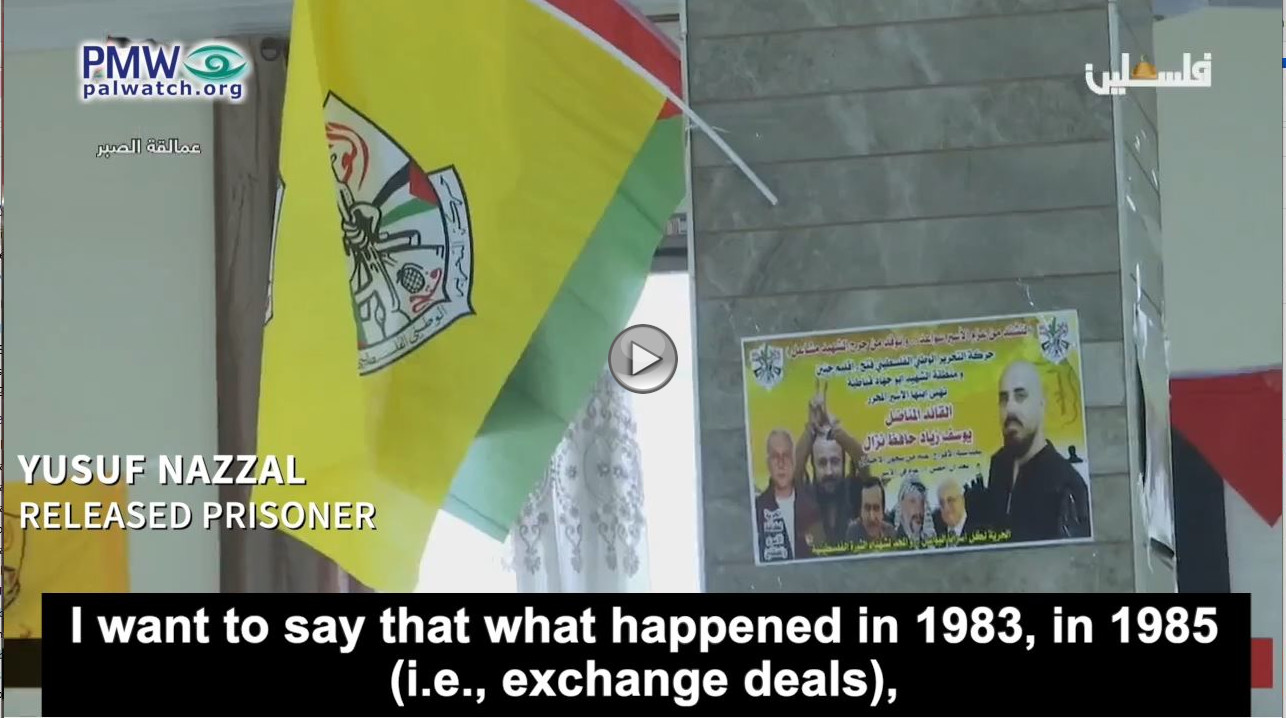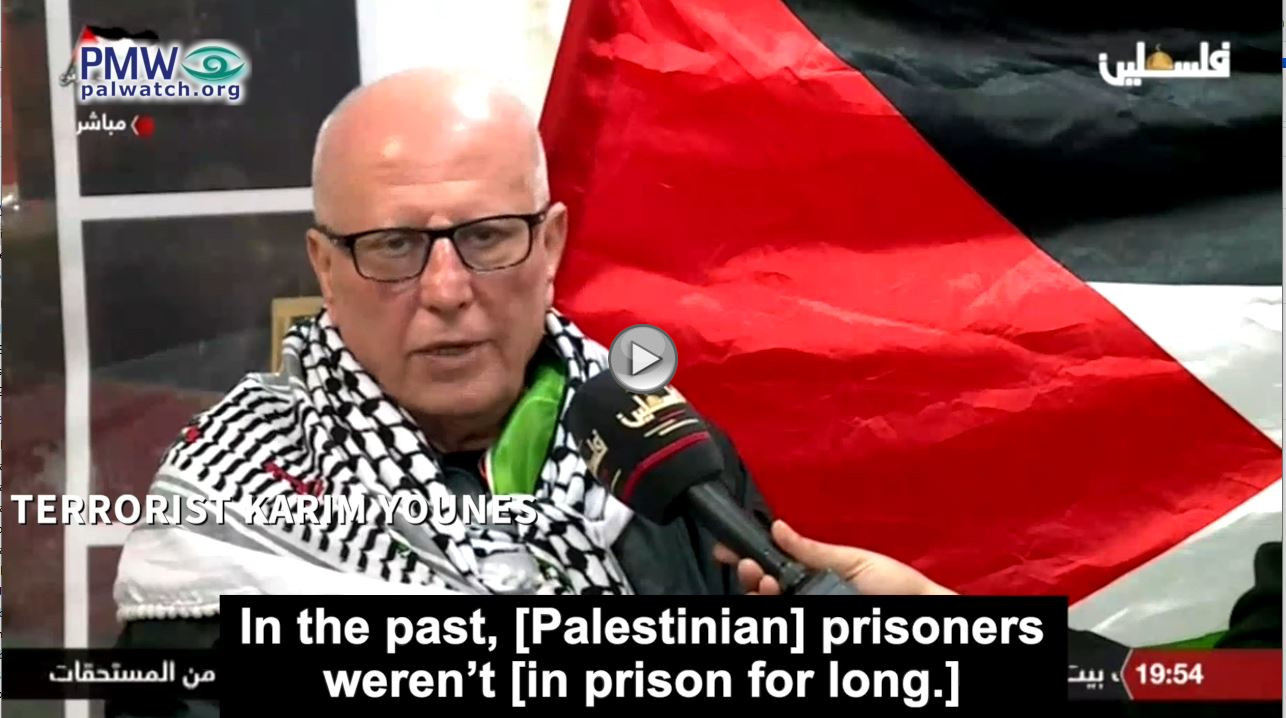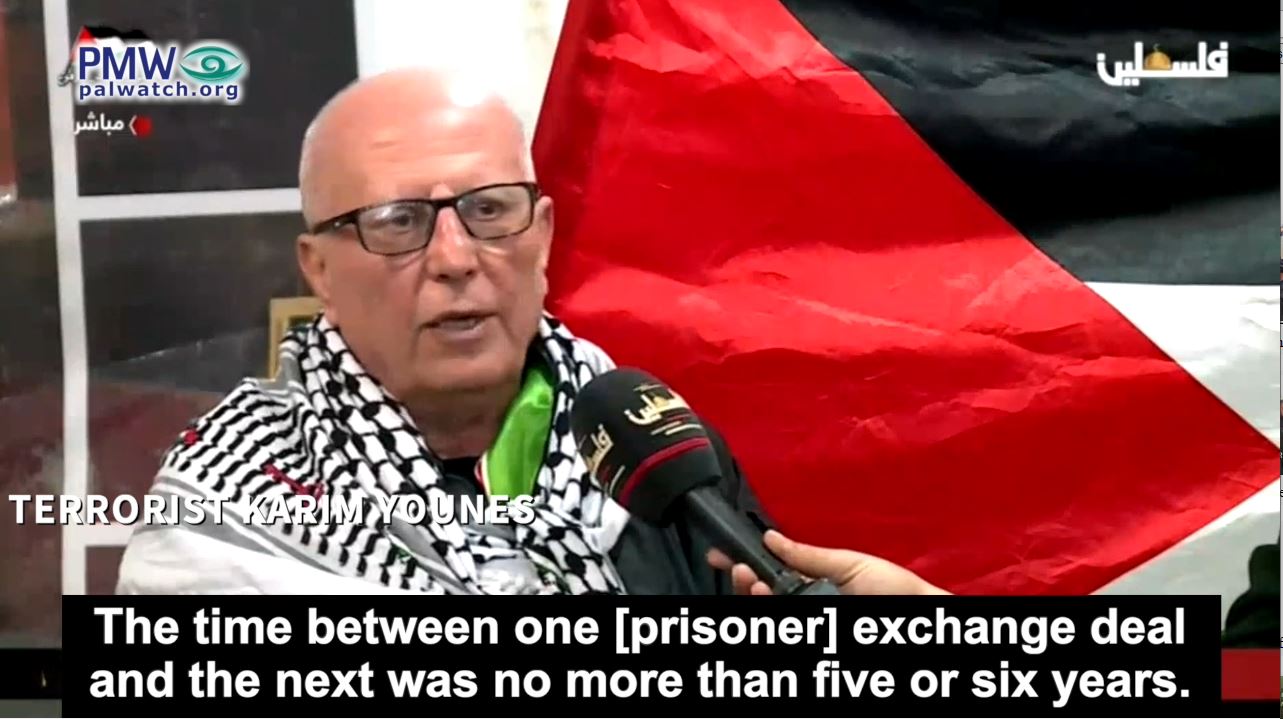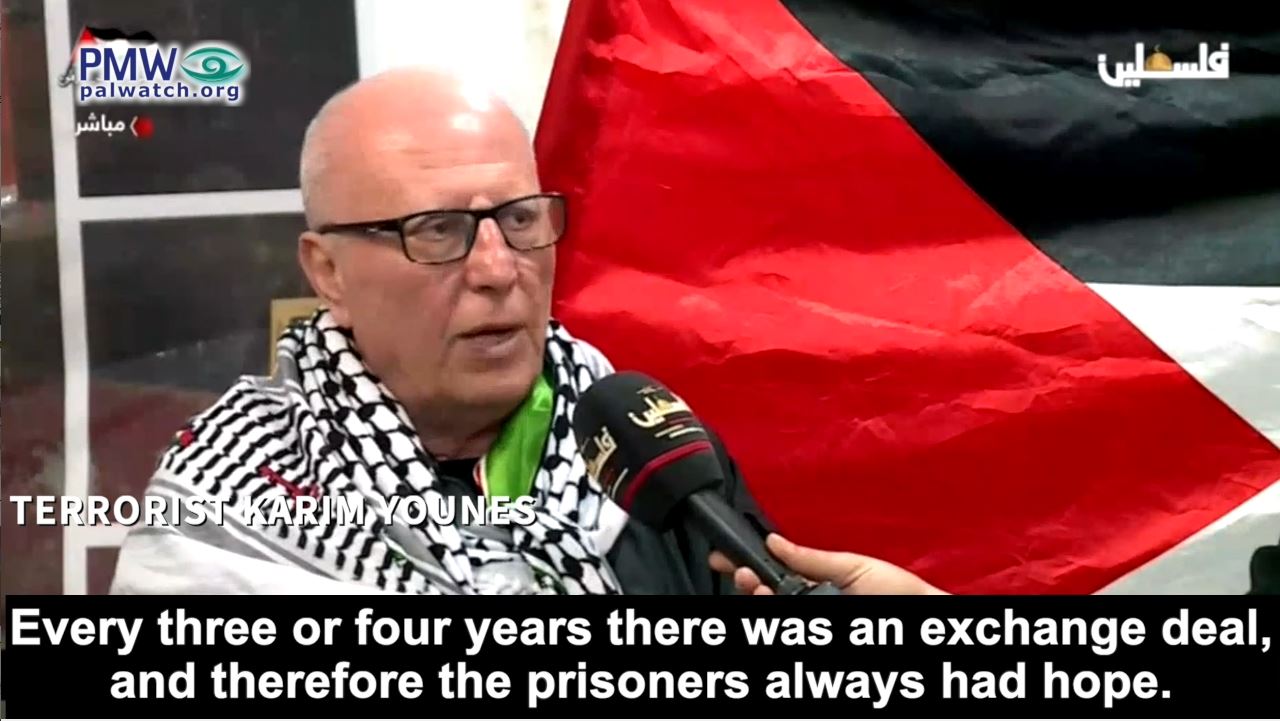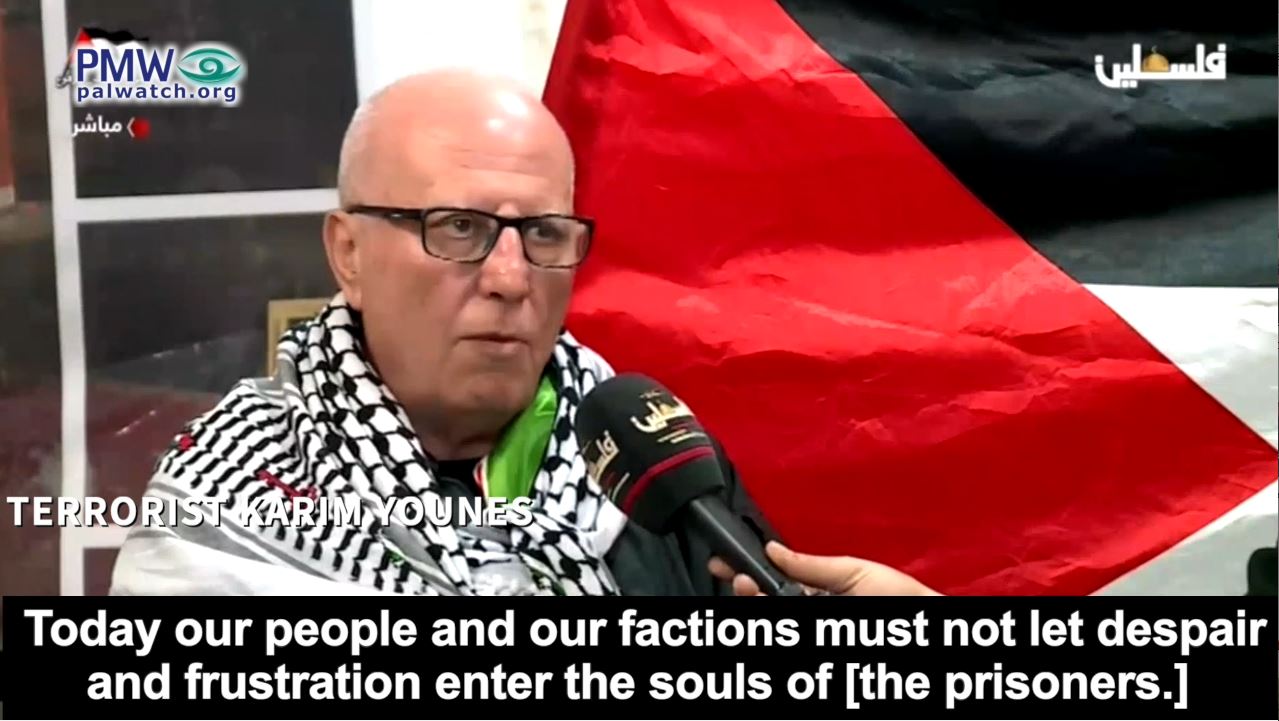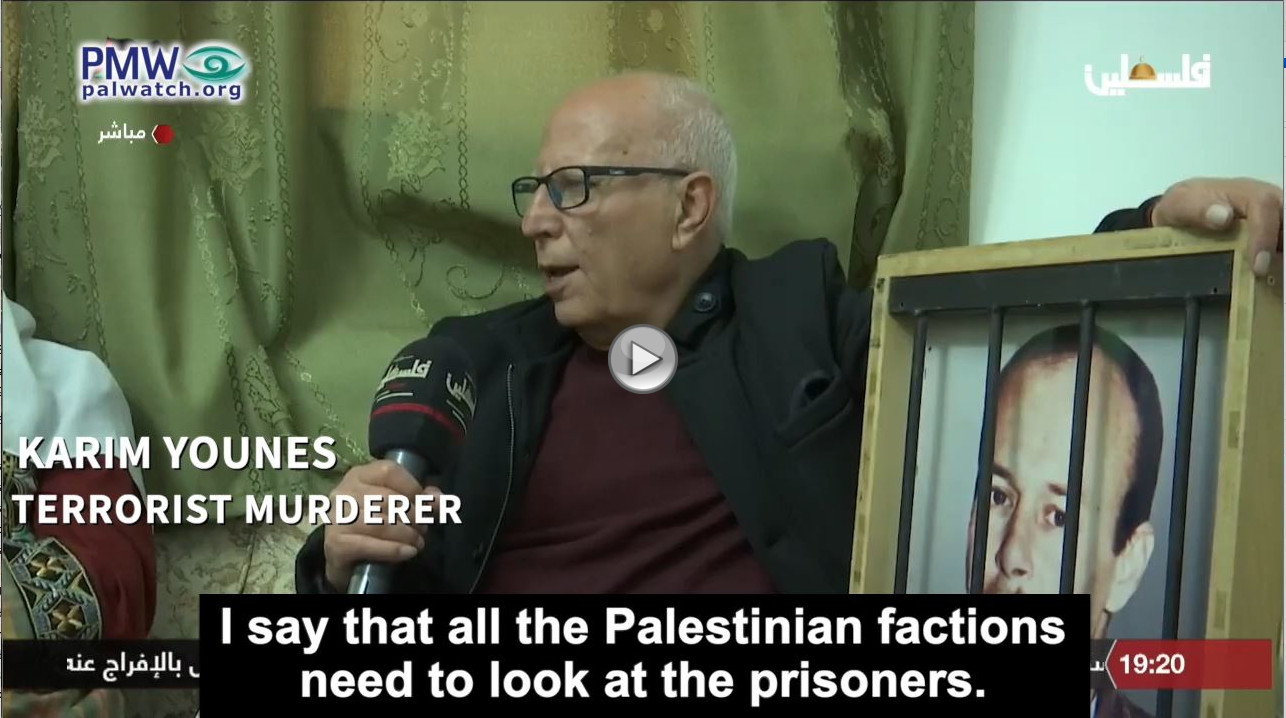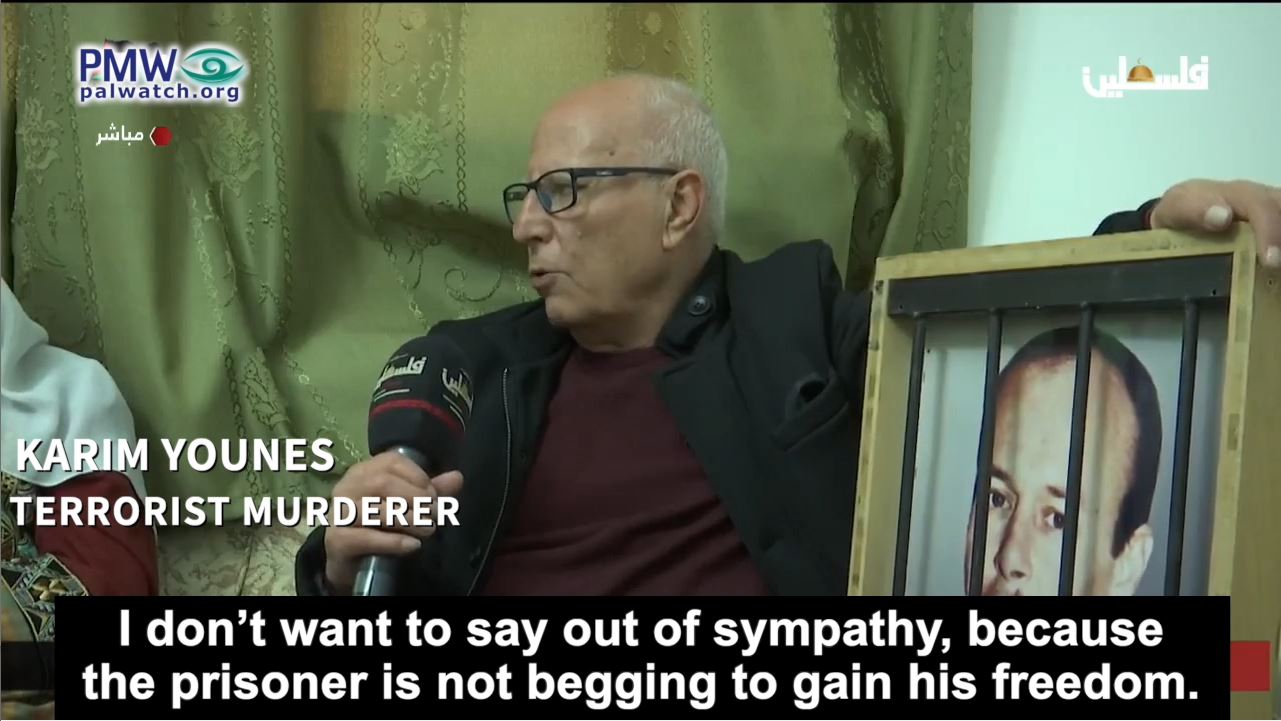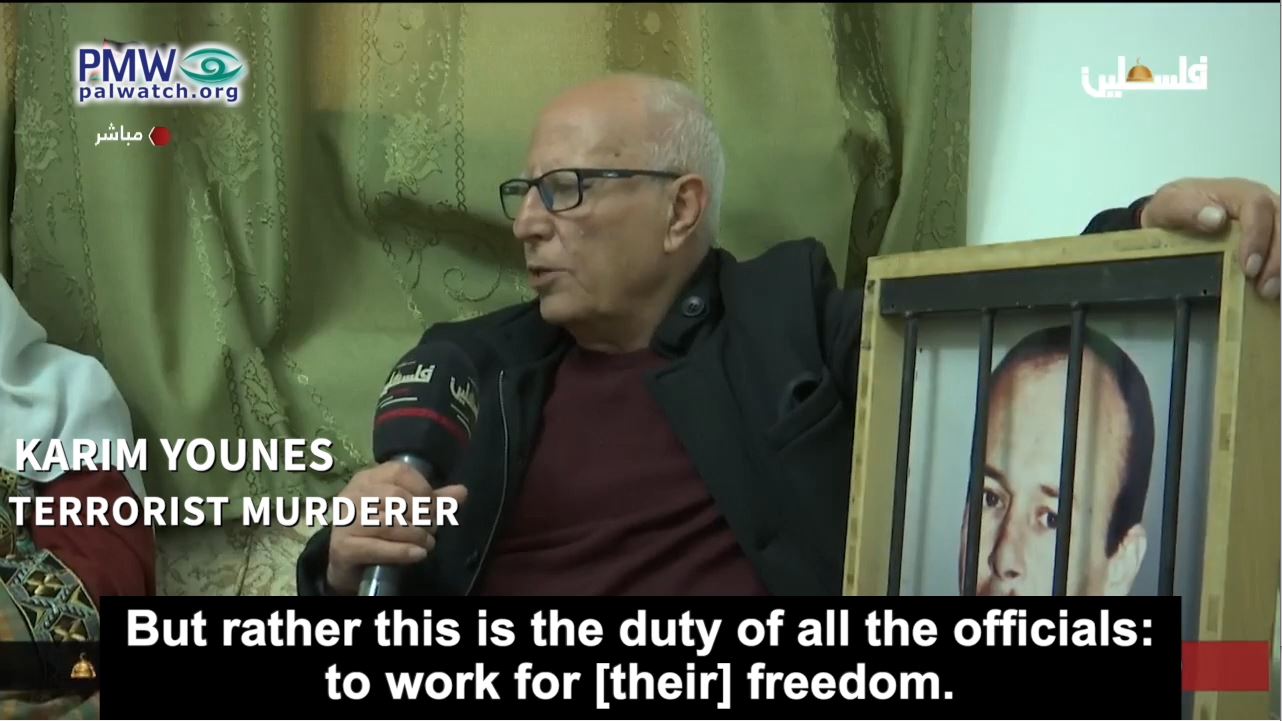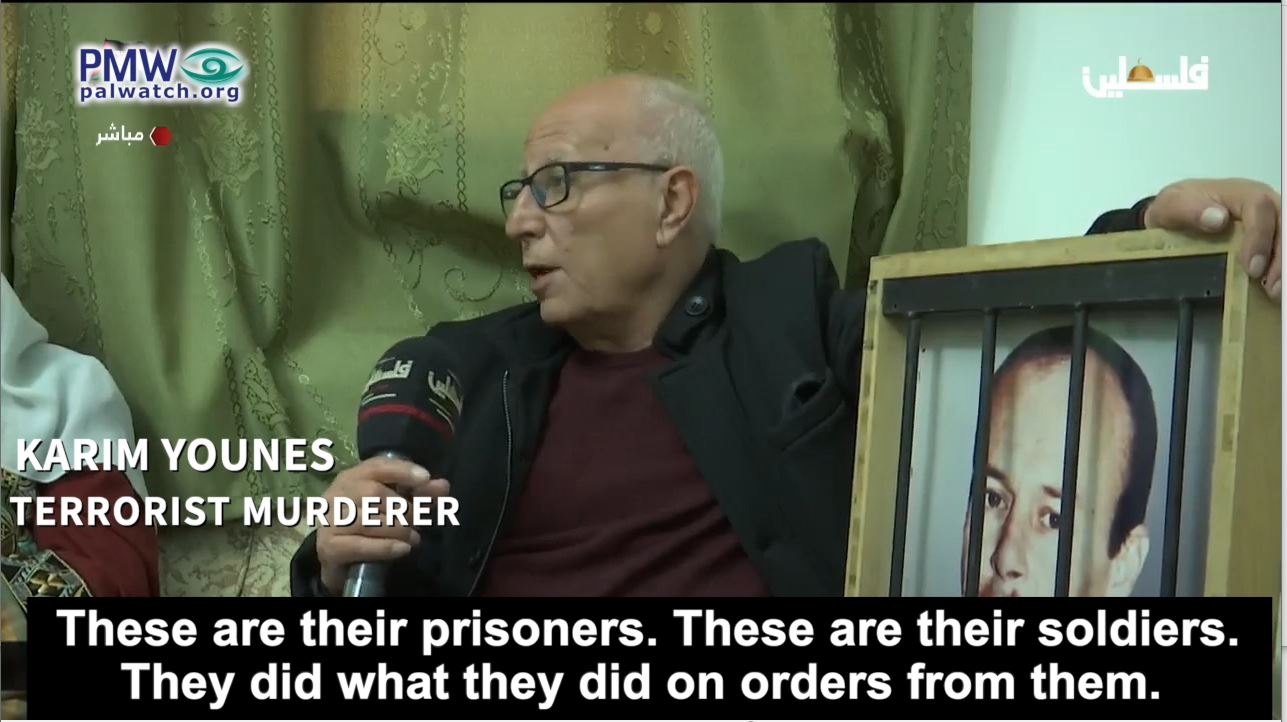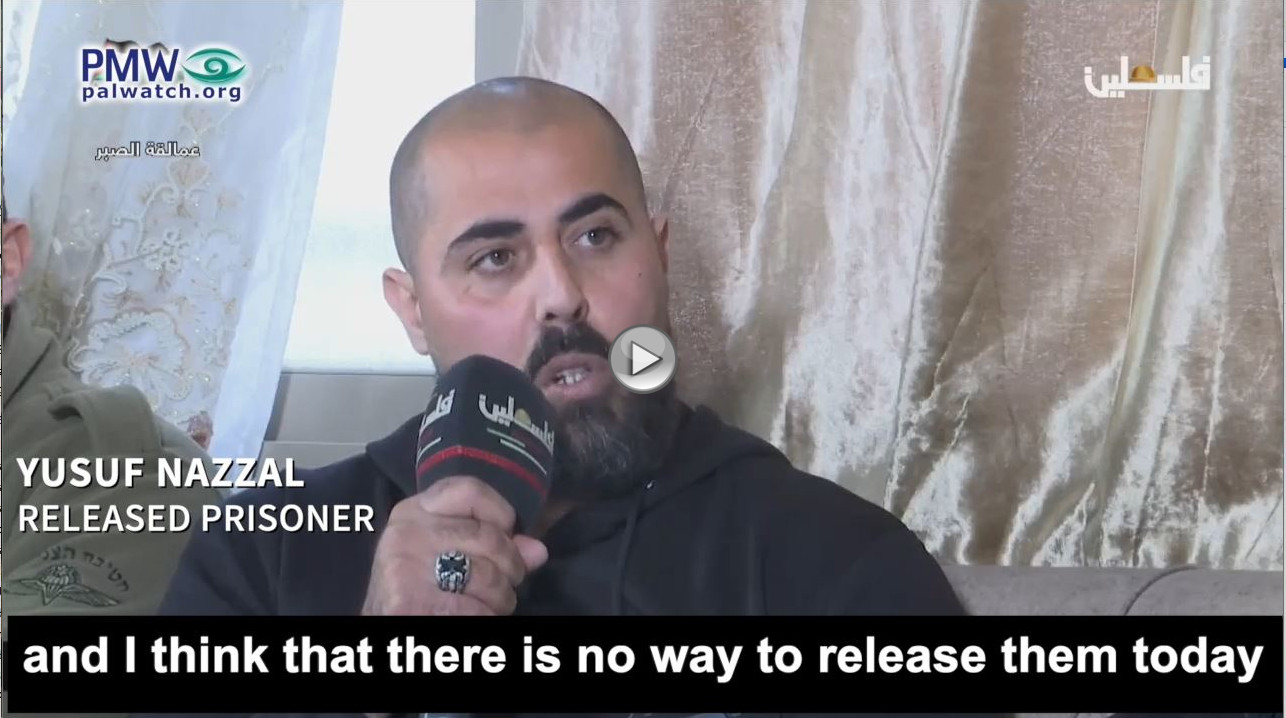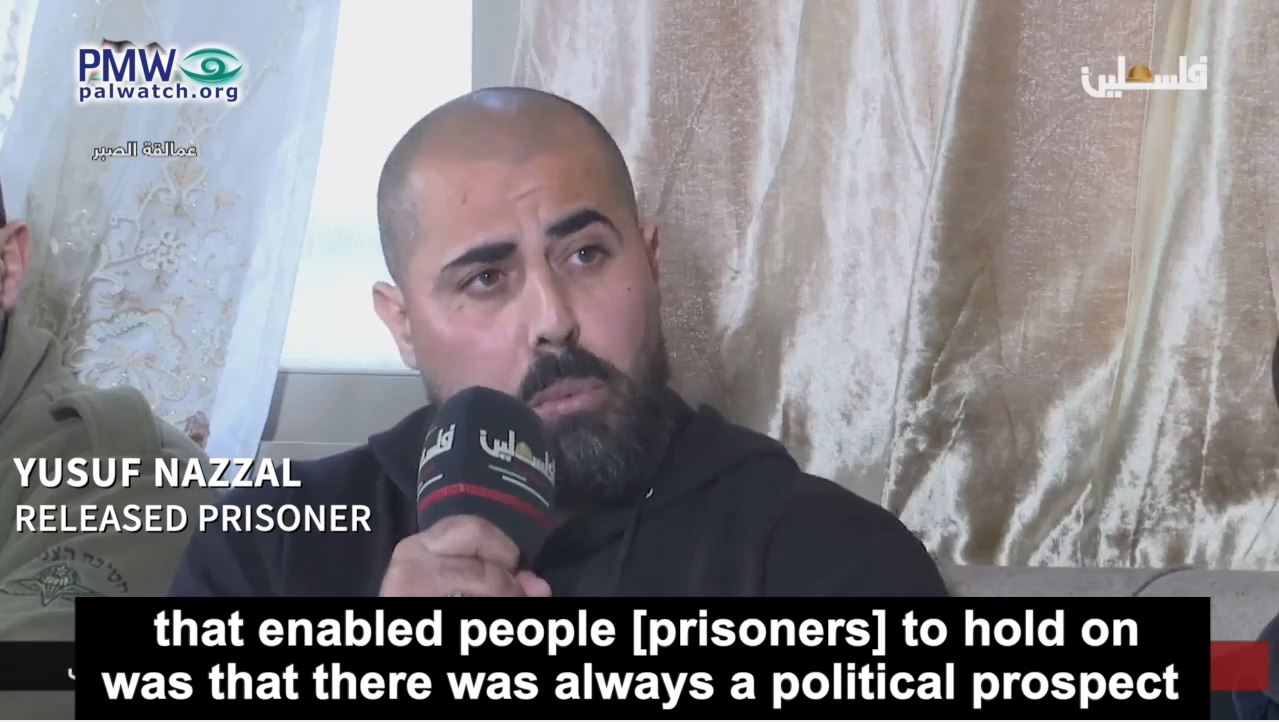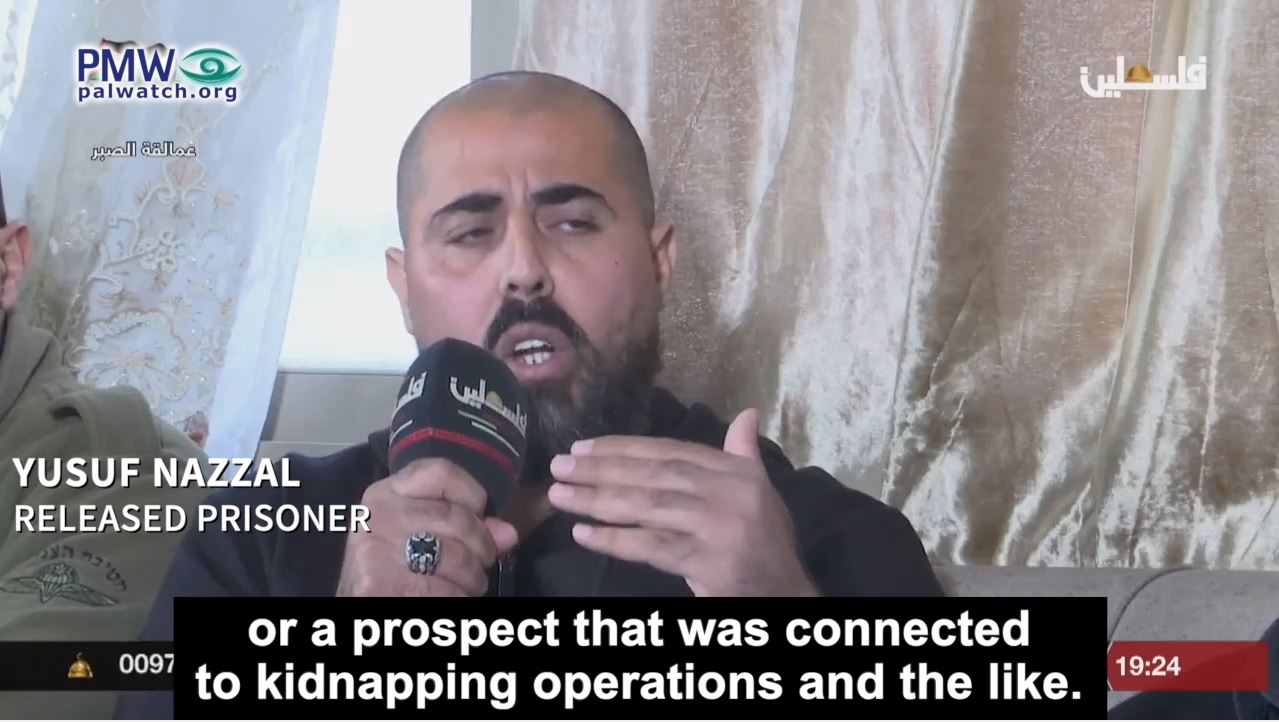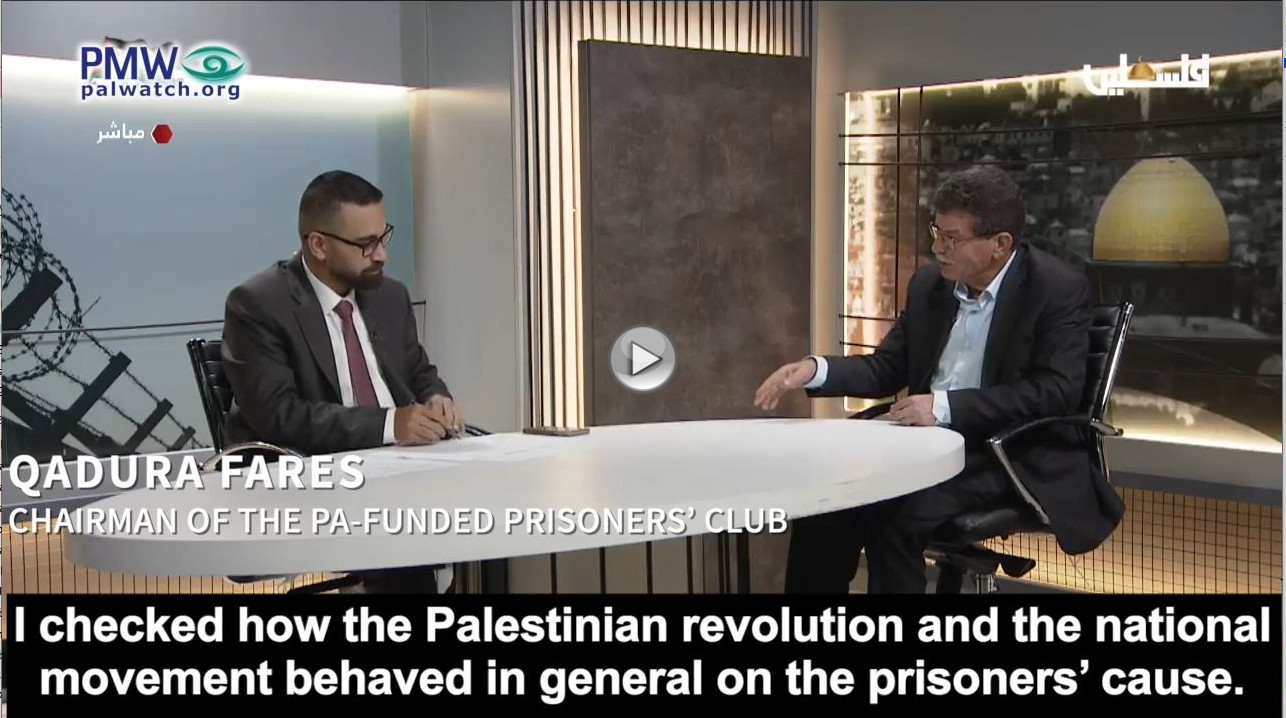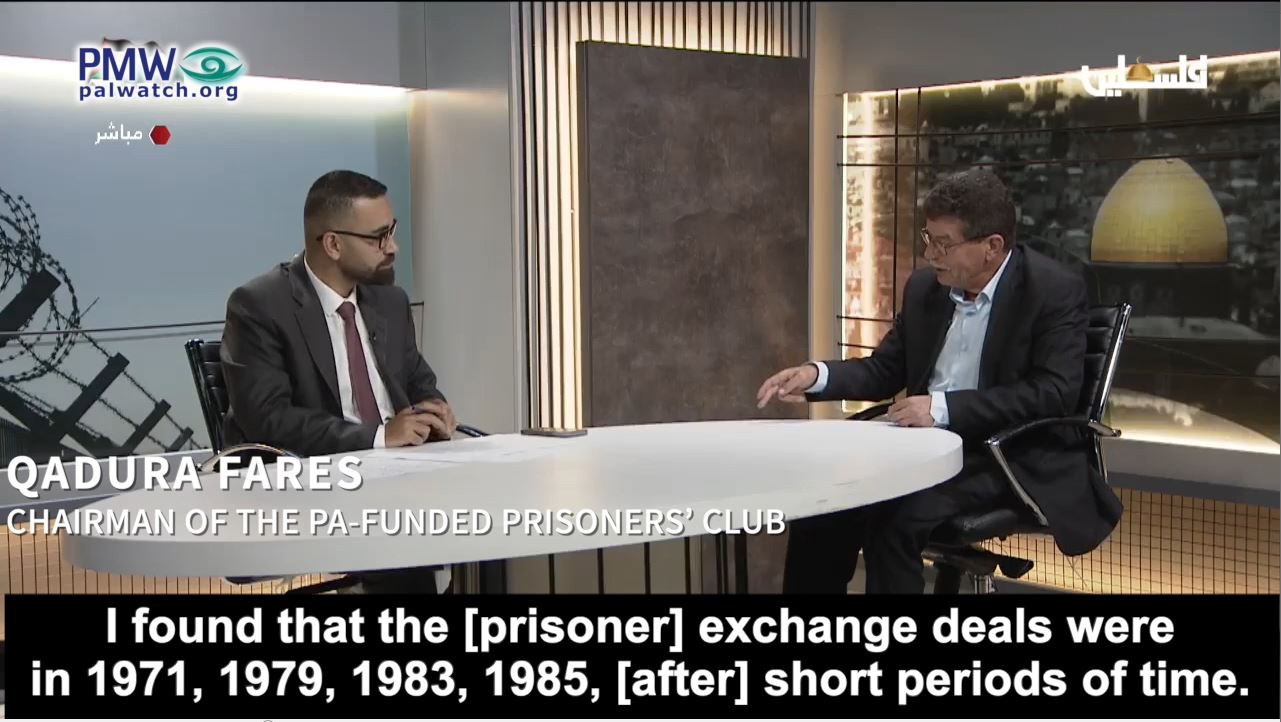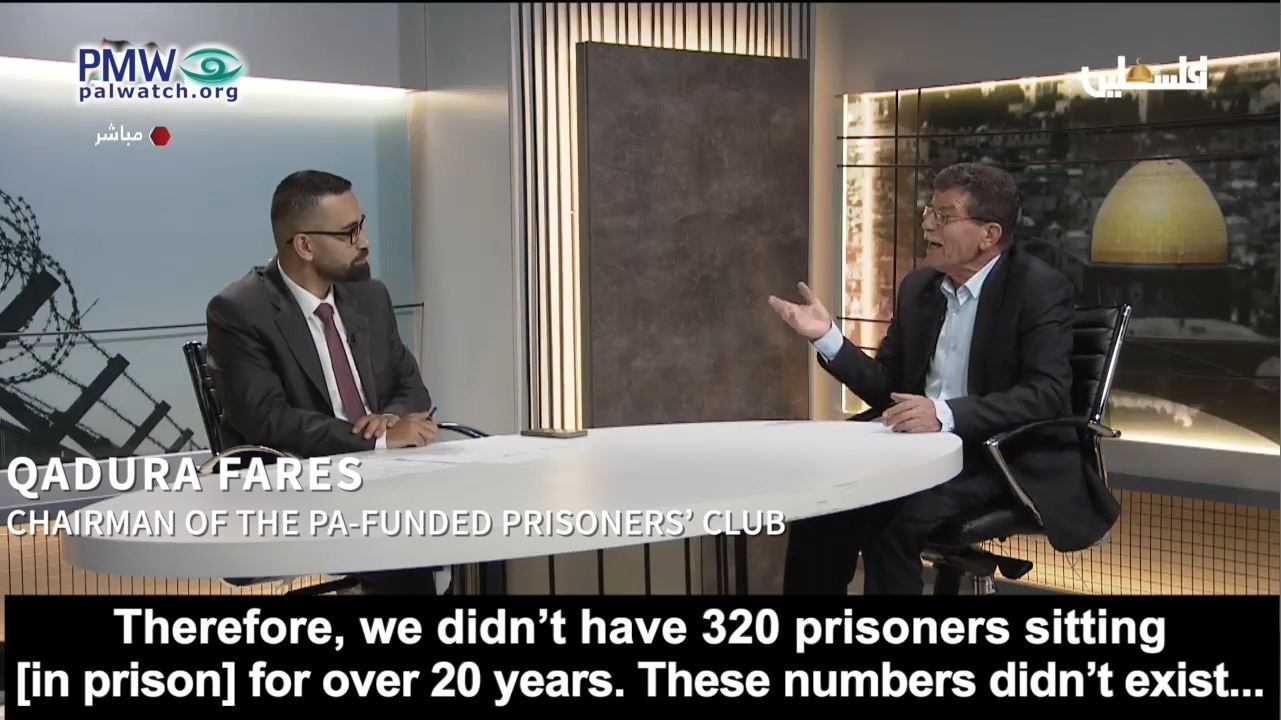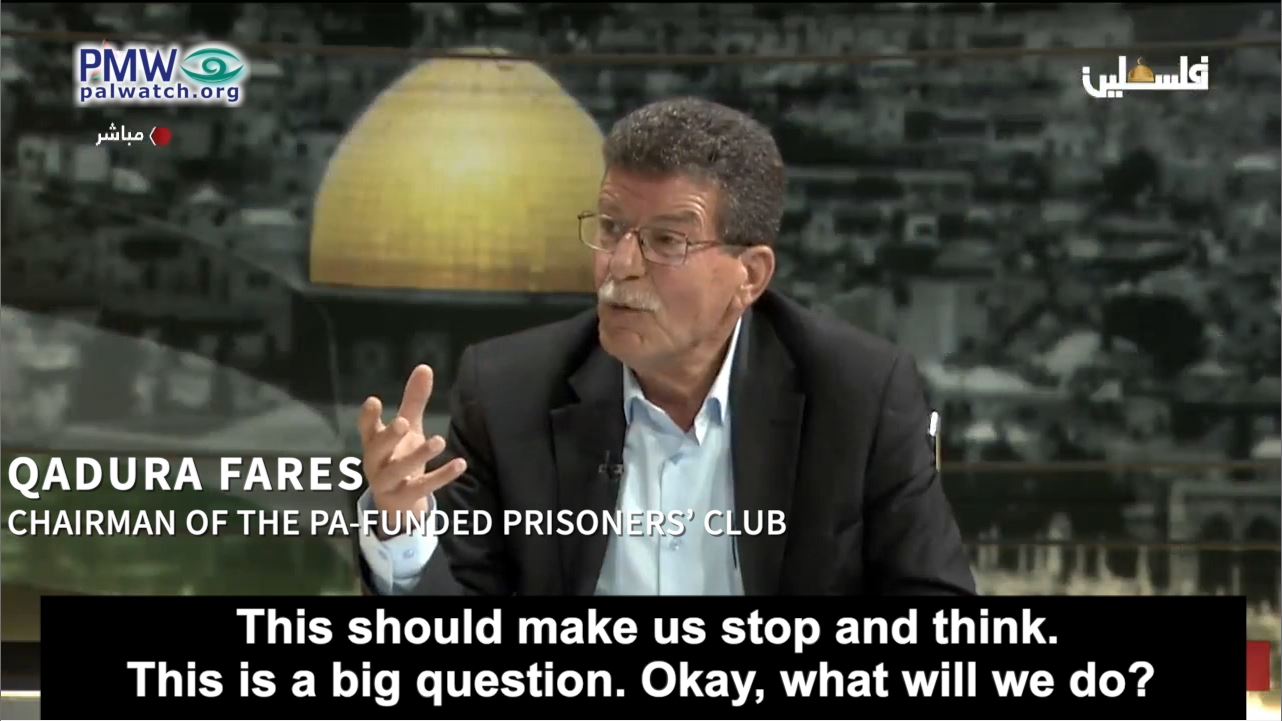Hamas and Palestinian Authority urge kidnapping Israelis to free imprisoned terrorists
Hamas leader: “We will not stop capturing soldiers until all our prisoners are released.”
PA TV broadcasts promotion of kidnapping by released prisoner:
“What happened in 1983, in 1985 (i.e., exchange deals), and in all the periods in which the prisoners were released in dignity and pride… this is the thing that will bring about the release of our prisoners… there is no way to release them today… except through prisoner exchange deals… Throughout the history of the prisoners’ movement, one of the elements of the resolve that enabled [prisoners] to hold on was that there was always… a prospect that was connected to kidnapping operations”Released terrorist murderer invokes past exchange deals in implicit call for kidnappings to release terrorists: “Every three or four years there was an exchange deal, and therefore the prisoners always had hope”
In at least two different interviews, newly released Israeli Arab terrorist murderer Karim Younes implicitly encouraged kidnappings of Israelis. This would - via resulting exchange deals - serve as a means to free terrorist prisoners before they have served their full time.
Having himself served a sentence of 40 years, Karim Younes recalled the past when “every three or four years there was an exchange deal, and therefore the prisoners always had hope.” He seemed to blame the “factions” – a Palestinian euphemism for terror groups - for not having pulled this off more, and implored that they “must not let despair and frustration enter the souls of [the prisoners].” In other words, they should continue kidnapping Israelis, thereby creating the possibility for exchange deals to give the imprisoned terrorists hope:
Terrorist murderer Karim Younes: “In the past, [Palestinian] prisoners weren’t [in prison for long.] The time between one [prisoner] exchange deal and the next was no more than five or six years. Every three or four years there was an exchange deal, and therefore the prisoners always had hope. Today our people and our factions must not let despair and frustration enter the souls of [the prisoners.] They must not feel that they are paying a price to no avail, in the shadow of the absence of a future for them and for all our people.”
[Official PA TV, Giants of Endurance, Jan. 5, 2023]
Another statement by Karim Younes two weeks later could be understood as a hint at the same kidnappings and exchange deals. Here he addressed “all the officials” and “all the factions,” stating that they ought to “take more serious action” in order to bring about the “freedom” of the prisoners, who he described as “soldiers” who “did what they did on orders from them” – the officials:
Terrorist murderer Karim Younes: “I say that all the Palestinian factions need to look at the prisoners. I don’t want to say out of sympathy, because the prisoner is not begging to gain his freedom. But rather this is the duty of all the officials: to work for [their] freedom. These are their prisoners. These are their soldiers. They did what they did on orders from them. Therefore all the factions, whichever they may be, need to take more serious action.”
[Official PA TV, Giants of Endurance, Jan. 19, 2023]
Another released prisoner similarly explicitly stated that “prisoner exchange deals” and “operations of kidnapping” is the way to release prisoners “in dignity and pride.” He referred to two exchange deals of the past:
Released prisoner Yusuf Nazzal: “I want to say that what happened in 1983, in 1985 (i.e., exchange deals), and in all the periods in which the prisoners were released in dignity and pride, I think this is the thing that will bring about the release of our prisoners who were sentenced to life, and I think that there is no way to release them today except through this thing except through prisoner exchange deals…Throughout the history of the prisoners’ movement, one of the elements of the resolve that enabled people [prisoners] to hold on was that there was always a political prospect or a prospect that was connected to kidnapping operations and the like. The prisoners always live on this hope.”
[Official PA TV, Giants of Endurance, Jan. 12 and 14, 2023]
Mentioning the eight years Hamas has been holding 2 Israeli civilians and the bodies of 2 Israeli soldiers – through whom no exchange deal has been reached - released prisoner Nazzal implied that more kidnappings should have been carried out and more done to reach exchange deals so as to free the 360 terrorists who have been in prison for more than two decades:
Released prisoner Yusuf Nazzal: “But a hope that is extended for eight years – you are talking about 360 prisoners who have been [in prison] for more than 20 years. For how long?”
[Official PA TV, Giants of Endurance, Jan. 12 and 14, 2023]
Chairman of the PA-funded Prisoners’ Club Qadura Fares made a similar implicit call for kidnapping Israelis to use them in exchange deals for terrorist prisoners. He explained that those same 300+ terrorist prisoners who have been in prison more than 20 years have not been freed because there have been no frequent exchange deals since the 1970s and 1980s:
Chairman of the PA-funded Prisoners’ Club Qadura Fares: “I checked how the Palestinian revolution and the national movement behaved in general on the prisoners’ cause.I found that the [prisoner] exchange deals were in 1971, 1979, 1983, 1985, [after] short periods of time. Therefore, we didn’t have 320 prisoners sitting [in prison] for over 20 years.These numbers didn’t exist... This should make us stop and think. This is a big question. Okay, what will we do?”
[Official PA TV, Giants of Endurance, Dec. 15, 2022]
Announcing the terror organization Hamas’ constant readiness to kidnap Israeli soldiers, Hamas’ Political Bureau Deputy Director Sheikh Saleh Al-Arouri recently vowed “not [to] stop capturing soldiers until all our prisoners are released”:
Headline: “Al-Arouri: The resistance has an inventory of occupation soldiers, and it will increase as we have promised”
“Hamas Movement Political Bureau Deputy Director Sheikh Saleh Al-Arouri said: …‘We are failing as long as there is a Palestinian prisoner behind bars, and we will not stop capturing soldiers until all our prisoners are released.’ …
He emphasized that the resistance has an inventory of occupation soldiers, and it will increase as it has promised.”
[Wattan, independent Palestinian news agency, Jan. 5, 2023]
The following are the specific exchange deals referred to above and additional information on the terrorists and hostages mentioned above:
The capture of 8 Israeli soldiers in Lebanon
Yusuf Nazzal – released prisoner who served 16 years in Israeli prison. PMW was unable to determine the nature of his crimes
Oron Shaul, Hadar Goldin, Avraham Mengistu, and Hisham Al-Sayed - Israeli soldiers Oron Shaul and Hadar Goldin were both killed in the Gaza Strip during Israel's Operation Protective Edge in 2014, which was a counter-terror operation in response to Hamas escalating its attacks against Israel including massive rocket barrages. Shaul and Goldin's bodies are still being held by the Hamas terror organization as bargaining chips. Hamas has also indirectly acknowledged holding Israelis Avraham Mengistu and Hisham Al-Sayed, who separately crossed into the Gaza Strip in 2014 and 2015 respectively. Mengistu and Al-Sayed both suffer from mental illnesses, but Hamas and Islamic Jihad view them as valuable bargaining chips in their efforts to pressure Israel to free terrorist prisoners.
